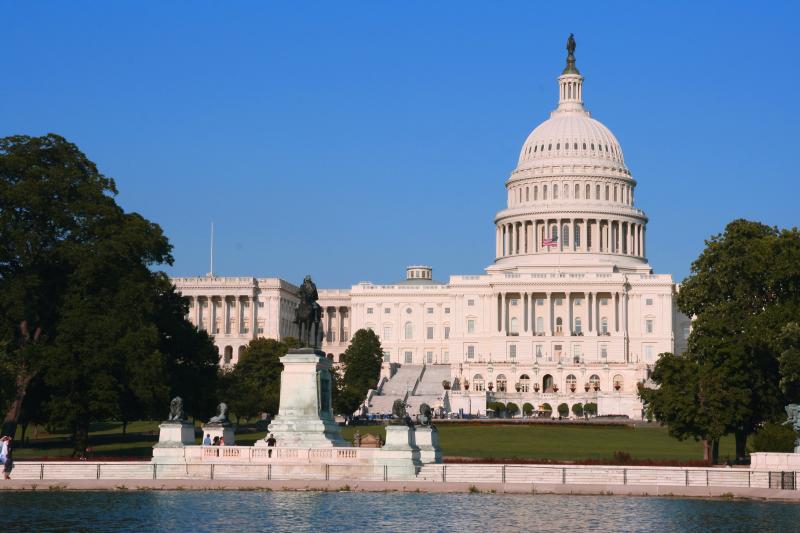
In a letter to Members of the Senate Finance Committee, ATR President Grover Norquist urged Congress to maintain America’s competitiveness in the global economy by making permanent the Controlled Foreign Corporation (CFC) look-thru rule, which is set to expire on January 1, 2020.
The CFC look-thru rule is a key factor in maintaining a globally competitive tax code. First put in place in 2006, the CFC look-thru rule allows U.S. foreign subsidiaries to avoid double or additional taxation when transferring assets or capital between countries. As the letter explains, allowing this provision to expire will harm American businesses and competitiveness:
“Allowing the expiration of this provision will subject American businesses to additional taxation when they are seeking to redeploy business earnings from one CFC to another. The majority of America’s foreign competitors do not face additional taxation when redeploying capital, so this provision is key to ensuring U.S. businesses are on a level playing field.”
Making the CFC look-thru rule permanent will build on the success of the TCJA, which moved toward a ‘territorial tax system’ where certain types of foreign earnings by American companies were exempt from double taxation.
The full letter can be found here and is below:
Dear Chairman Grassley, Ranking Member Wyden, and Members of the Senate Finance Committee:
I write in support of a permanent Controlled Foreign Corporation (CFC) Look-Thru Rule.
The CFC look-thru rule is a key component of a modern, globally competitive U.S tax system and should be made permanent, or at the very least, extended. However, if lawmakers fail to act soon, the CFC look-thru rule will expire effective January 1, 2020.
Allowing the expiration of this provision will subject American businesses to additional taxation when they are seeking to redeploy business earnings from one CFC to another. The majority of America’s foreign competitors do not face additional taxation when redeploying capital, so this provision is key to ensuring U.S. businesses are on a level playing field.
The CFC look-thru rule was first enacted in 2006 under IRC section 954(c)(6). It exists as an exception to Subpart F base erosion rules which are designed prevent a business from improperly shifting passive income (rents, royalties etc.) to low tax jurisdictions. Under this provision, any income designated as Subpart F income would be subject to full U.S. corporate tax. The look-thru rule exempts payments from Subpart F when these payments are between two U.S. foreign subsidiaries in different countries.
A permanent CFC look-thru rule compliments the goals of the TCJA. During consideration of the Tax Cuts and Jobs Act in 2017, Congress preserved the CFC-look thru rule in recognition that U.S. tax should not be owed when an American company redeploys capital among foreign subsidiaries. However, lawmakers did not extend the provision, so it will expire effective 2020.
Tax reform made the U.S. more competitive by moving the tax code toward a territorial tax system. Multiple changes were made to the tax code including exempting certain types of foreign earnings from U.S. taxation and implementing several new international tax provisions such as Global Intangible Low- Tax Income (GILTI) and the Base Erosion Anti-Abuse Tax (BEAT).
Under the new system, certain types of foreign earnings repatriated back to the U.S. are exempt from double taxation, while other types of earnings are subject to the 10.5 percent GILTI rate or the 21 percent rate under Subpart F rules.
It is important to note that a permanent CFC look-thru rule does not give taxpayers a windfall or an opportunity to completely avoid taxation on foreign income – while the provision exempts qualifying payments from Subpart F taxation, these may still be subject to base erosion provisions like GILTI.
The CFC look-thru rule is a key pillar of a competitive, territorial tax system and should be made permanent. Failing to act will undermine the gains of the TCJA in making the U.S. tax code more competitive by unnecessarily imposing taxation on U.S. businesses when they seek to deploy capital from one country to another.
Thank you for your consideration. If you have any questions, please contact me or ATR’s Director of Tax Policy Alex Hendrie at 202-785-0266.
Onward,
Grover G. Norquist
President, Americans for Tax Reform

